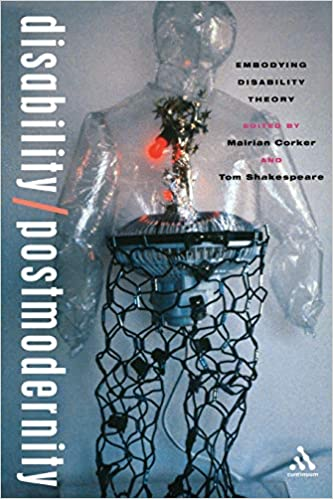

Most ebook files are in PDF format, so you can easily read them using various software such as Foxit Reader or directly on the Google Chrome browser.
Some ebook files are released by publishers in other formats such as .awz, .mobi, .epub, .fb2, etc. You may need to install specific software to read these formats on mobile/PC, such as Calibre.
Please read the tutorial at this link: https://ebookbell.com/faq
We offer FREE conversion to the popular formats you request; however, this may take some time. Therefore, right after payment, please email us, and we will try to provide the service as quickly as possible.
For some exceptional file formats or broken links (if any), please refrain from opening any disputes. Instead, email us first, and we will try to assist within a maximum of 6 hours.
EbookBell Team

0.0
0 reviews
ISBN 13: 9780826450555
Author: Mairian Corker, Tom Shakespeare
With contributions from leading scholars in the USA, Canada, the UK, Switzerland, Japan, India, Australia and Jordan, Disability and Postmodernity is the first book to study disability within the context of the "postmodern" world of the twenty-first century. Organized into three sections, the volume opens with an exploration of theoretical perspectives, looking especially at phenomenology, at the body, and at concepts of difference and identity. The second section deals with culture, discussing aesthetics, narrative, film, architecture and design, while the final section explores social practice, including chapters on disabled childrens' perspectives, sexual identity and "madness and mental distress".The collection creates a bridge between social science perspectives on disability (predominant in disability studies in the UK for example) and humanities perspectives (which dominate the US approach). The authors aim to demystify the concept of postmodernity and to suggest ways in which it fosters a holistic approach to the study of disability that better represents and reflects the complexity of disabled people's experience. This is a unique and important contribution to both disability studies and social and cultural theory.
1. Mapping the Terrain Mairian Corker and Tom Shakespeare
2. A Journey around the Social Model Carol Thomas and Mairian Corker
3. On the Subject of Impairment Shelley Tremain
4. A Postmodern Disorder: Moral Encounters with Molecular Models of Disability Jackie Leach Scully
5. Bodies Together: Touch, Ethics and Disability Janet Price and Margrit Shildrick
6. The Body as Embodiment: An Investigation of the Body by Merleau-Ponty Miho Iwakuma
7. Disability in the Indian Context: Post-colonial Perspectives Anita Ghai
8. Cultural Maps: Which Way to Disability? Tanya Tichkosky
9. Defusing the Adverse Context of Disability and Desirability as a Practice of the Self for Men with Cerebral Palsy Russell P. Shuttleworth
10. Changing the Subject: Postmodernity and People with "Learning Disabilities" Dan Goodley and Mark Rapley
11. Madness, Distress and Postmodernity: Putting the Record Straight Anne Wilson and Peter Beresford
12. Countering Stereotypes of Disability: Disabled Children and Resistance John Davis and Nick Watson
13. Estranged-Familiarity Rod Michalko
14. Image Politics without the Real: Simulacra, Dandyism and Disability Fashion Petra Kuppers
15. De-gene-rates, Replicants and Other Aliens: (Re)defining Disability in Futuristic Film Johnson Cheu
16. Naming and Narrating Disability in Japan James Valentine
17. The Crooked Timber of Humanity: Disability, Ideology and the Aesthetic Anita
Tags: Mairian Corker, Tom Shakespeare, postmodernity, Embodying